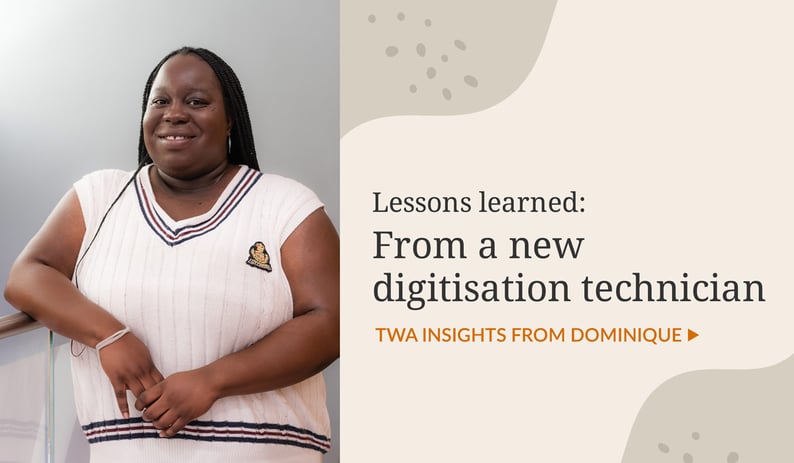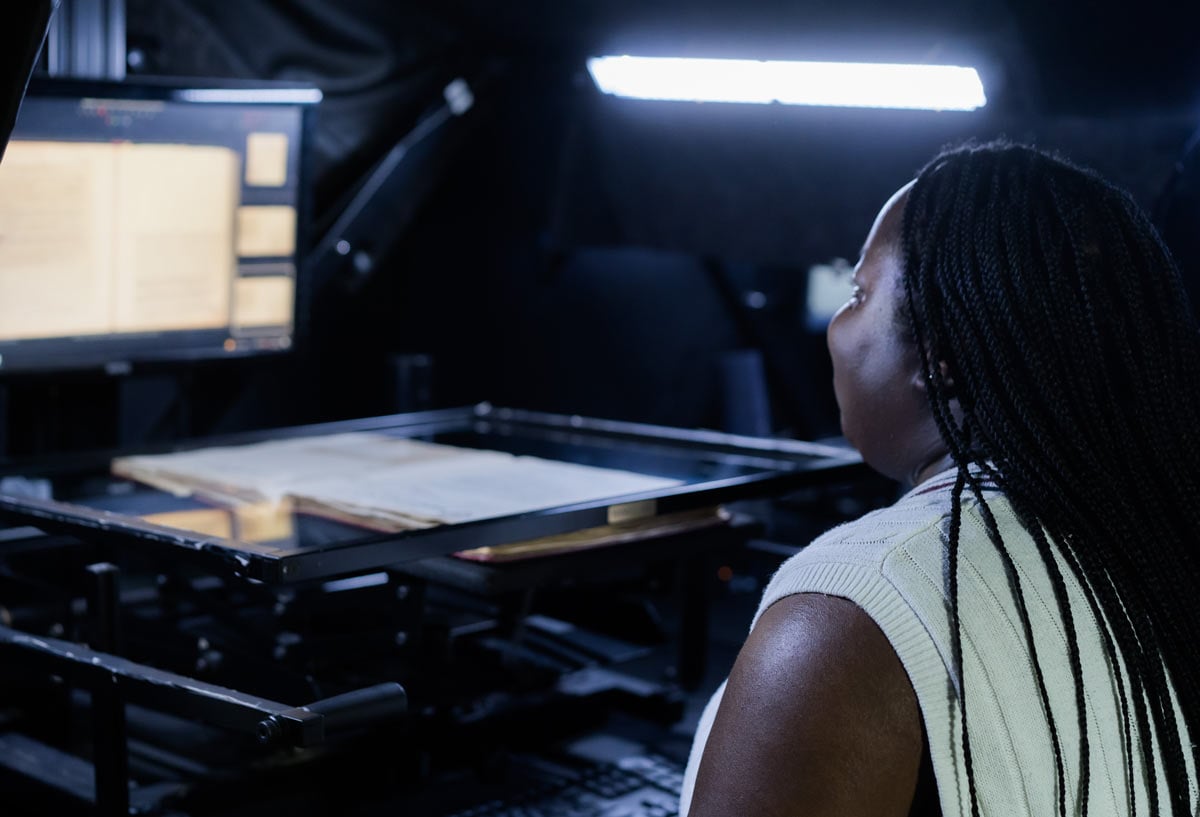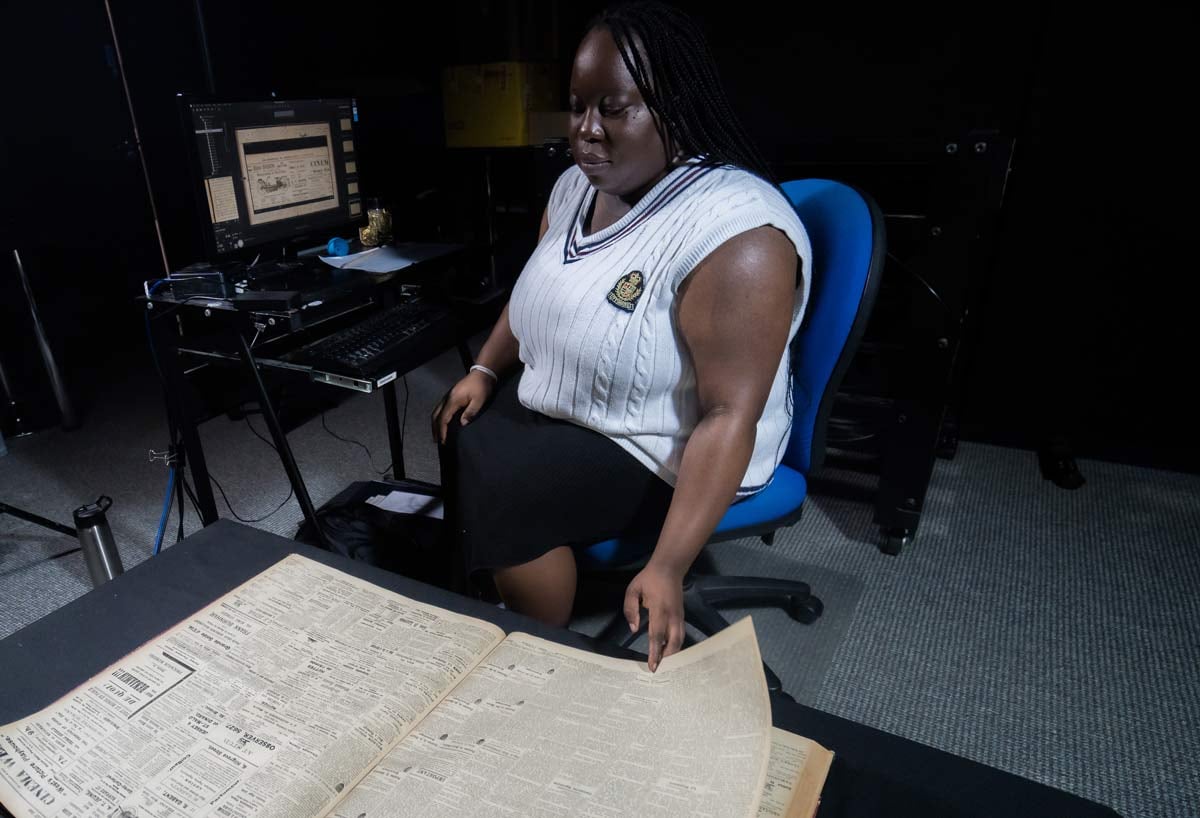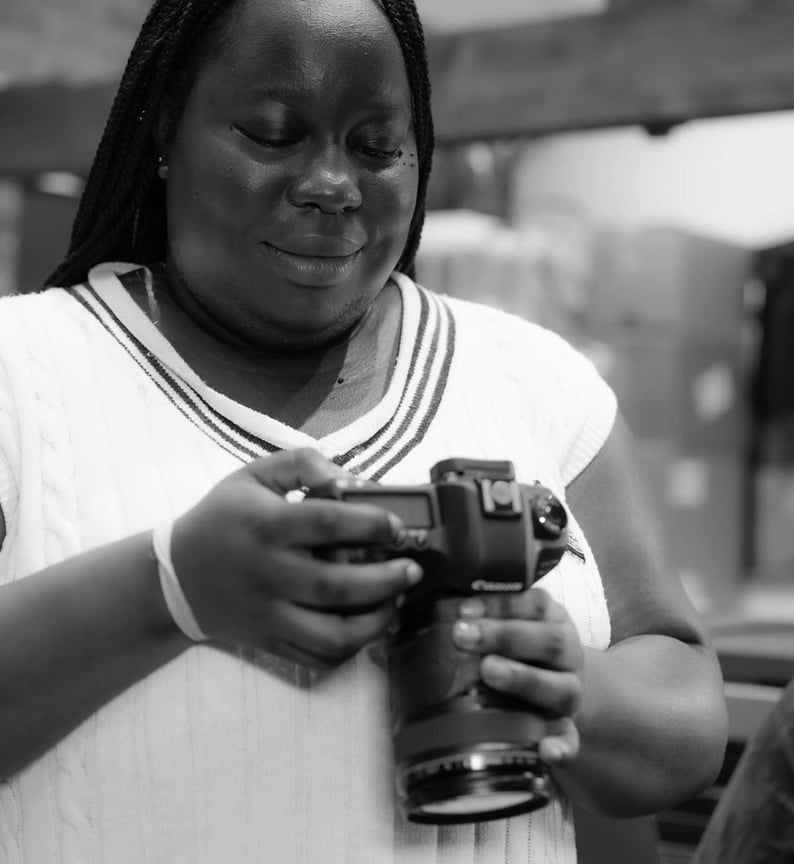
Introducing Dominique!
It is with great pleasure that we introduce Dominique as an official and permanent member of the TWA team, working in our production studios here in Kettering. Dominique has been with us for over six months now and it has been an absolute pleasure to know and work with her.
It’s as if she’s always been here! Dominique has worked incredibly hard to develop the skills necessary to meet TWA’s high expectations, demonstrating commitment, dedication and attention to detail in everything she does. We asked Dominique if she would kindly share her experience of what it has been like to start out as a new digitisation technician, and to provide a little insight for those looking to start their own career in this field.
Here’s what Dominique had to say:

Hi, I'm Dominique and I am a Digitisation Technician here at Townsweb Archiving. This isn't the role I thought that I would be in when I finished University, having graduated with a degree in Fashion Journalism. I didn't even know such a role like this existed, and I was completely new to the world of archiving. When I was at university I loved being able to talk to so many different people, and being able to tell their stories. The thing that I will always be most proud of during this time was making my own magazine 'Obscure' It. This focused on black culture and at the time I was making it, it was something that I felt was very topical. I wanted it to be something that people could look back on and understand what society was like at the time, like a snapshot into the past. Thinking about it, I think this has transferred into what I enjoy about this role, making sure that history is not forgotten.
After looking for jobs for a while, I came across a role that was advertised through The Kickstart Scheme and then, when I moved from London to Kettering, my Job Coach at the Job Centre told me more about the scheme. Townsweb was the first role I interviewed for and, thankfully, I got it!
I was able to watch other experienced technicians, and there is a lot of learning on the job. There is a lot to remember, and you're never going to remember everything when you’re just starting out. I made sure to ask questions all the time, and even now that I've been here for over six months I'm still learning. For example, I've learnt a lot about the software we use, 'CaptureOne', and now I am able to prepare and set up a new project by myself. I also understand the different software settings and why and how we change them, and this goes for the camera settings too. I thought I knew a lot about cameras, since I worked with them a lot during my time university, but coming into this role I was able to learn even more about things such as shutter speed and white balance, for example.

Every project is very different and we work with many different types of materials. One day, for example, we could be working with bound volumes and the next it could be photos. Or it could be that, after scanning the items, post-processing is required, such as how the images must be named because the client has specific requests. Just because you have been working with books for one project doesn't mean that books will behave in the same way on the next one. In one project you could be working with older books that have been opened many times during their lifetime and for me, as a technician, this is easier to scan because the spine of the book has been broken in. However, when dealing with much newer books the opposite is true, making the book harder to position and scan because the spine doesn't open so easily, and we must always be careful not to damage the books.
After starting a project it is quite easy to get into the swing of things. When starting a new project the first thing you have to do is ensure the colour settings are right for the material. Our job is to make sure that the digital version looks as close to the original version as possible, so colour settings are very important. I do enjoy when I get to set up and start a new project because it's a great way to get to grips with new ways to use the software and camera.

A project I have really enjoyed working on was in relation to scrapbooks. It was interesting to see the change over time as they covered years of a particular person’s life. This project also many foldouts, which can add a lot of time, The foldouts in this particular project were of old posters and it was fun to look back over them.
Even though this isn't the career path I thought I would have, I really enjoy this role and I feel that I have been able to learn a lot about archiving and gain a lot of new skills. Working on projects that have been difficult to capture, or that have very specific client specifications, has been great because it has allowed me to problem solve and become better in my role. I hope that I am able to learn how to digitise other materials and continue to gain new skills that will help me to further my career.
For anyone thinking about becoming a digital technician I would suggest that you get familiar with cameras. Even though training will be provided, it would be helpful to be familiar with the equipment beforehand. Also, there is always going to be something new to learn. Like I said before, every project is different, so when working on something new, there will always be new problems that arise and new ways to fix them. For example, when working on a book where the spine doesn't open as much, you may have to turn the camera to avoid casting shadows across the center pages. These are just a few of the things I have learnt and I'm sure there will be many more that I will continue to learn over time.

A summary of lessons learned:
For anyone thinking about becoming a digitisation technician I would recommend:
-
Get familiar with cameras - It would be helpful to be familiar with one before you get started in this role.
-
Every project is different - There will always be new problems that arise and new ways to fix them.
-
Never assume - Old books and new books can behave completely differently during digitisation, what works for one may not work for the other!
-
Watch and learn - Experienced technicians can help you learning the do’s and don’ts of digitisation.
-
Be proud - You are protecting important material for people to look back on, like a snapshot into the past, so enjoy the fact that you are helping to make sure that history is being protected.
-
Be prepared to learn - There will be new software, as well as lots of camera and equipment settings.
-
Embrace new projects - They are a great way to get to grips with new ways to use the equipment.
- Ask questions - On the job training is vital, and so is asking questions.



 USE OUR ONLINE
USE OUR ONLINE








